In today's fast-paced world, unexpected challenges often arise, and sometimes those challenges come in the form of medical emergencies. If you find yourself needing to step away from your job for health reasons, crafting a thoughtful resignation letter is key. It's essential to communicate your situation clearly while maintaining professionalism, ensuring a smooth transition for both you and your employer. Curious about how to write the perfect resignation letter during a medical emergency? Read on to discover helpful tips and a template to guide you!
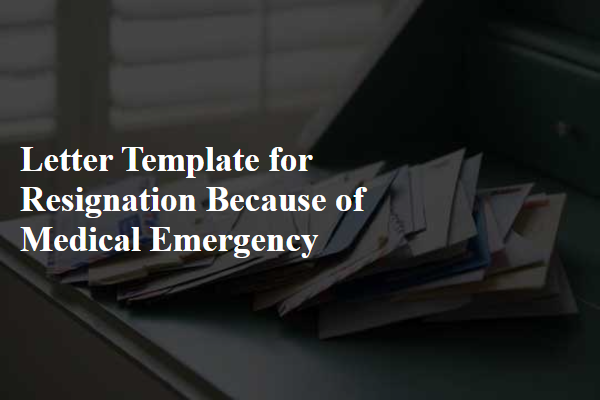
Expression of gratitude
A medical emergency often leads individuals to make difficult decisions, including the need to resign from their positions for personal health reasons. Employees facing such circumstances should express genuine gratitude toward their employer, colleagues, and the organization. This appreciation highlights the positive experiences and professional growth gained during their tenure. Acknowledging support or understanding received during challenging times can foster goodwill, maintaining relationships even after departure. The communication, though somber, serves as a testament to the impact of teamwork and camaraderie experienced in the workplace, emphasizing a desire for future connection despite the current health-driven changes.
Clear statement of resignation
A resignation due to a medical emergency often involves a clear and concise notification to the employer. In this instance, an individual may need to prioritize their health and well-being, citing specific medical conditions or circumstances requiring immediate and sustained attention. In addition, providing a timeframe for the resignation, typically giving two weeks' notice, is standard practice to enable a smooth transition for the employer. The letter should also reflect gratitude for the opportunities received during employment, differing experiences gained, and the supportive work environment. Such a resignation may affirm the importance of focusing on health while potentially referencing future communication about rejoining the workforce when circumstances allow.
Mention of medical emergency
Due to an unexpected medical emergency, I must submit my resignation from my position. The need for immediate and comprehensive medical attention, including potential surgery and long-term recovery, necessitates my full focus away from work responsibilities. My healthcare provider has advised that I prioritize my health as the situation requires extensive treatment and follow-up care. I regret the short notice and any inconvenience caused to my colleagues and the management team during this transition. Thank you for the experiences and opportunities I have had during my time here.
Offer to assist in transition
A resignation due to a medical emergency entails significant emotional and professional adjustments. The decision to resign can stem from unexpected health issues that require immediate attention. In such scenarios, expressing gratitude to the employer for their support, along with a willingness to assist in training a replacement or handing off responsibilities, can help maintain a positive relationship. It is crucial to remain professional when detailing the reasons, while adhering to the legal obligations of providing notice. Preparing a handover document outlining ongoing projects and tasks may further ensure a smooth transition.
Contact information for future correspondence
Resigning from a position due to a medical emergency requires clear communication. In the resignation letter, include your full name, job title, and date of resignation. Clearly state your reason for leaving, emphasizing the medical emergency's urgency. Provide details such as contact information for future correspondence, ensuring your phone number and personal email address are included for any follow-up or needed documentation. Express gratitude for the opportunities and experiences gained during your tenure, and convey best wishes to the team moving forward.
Letter Template For Resignation Because Of Medical Emergency Samples
Letter template of resignation connected to health-related complications.
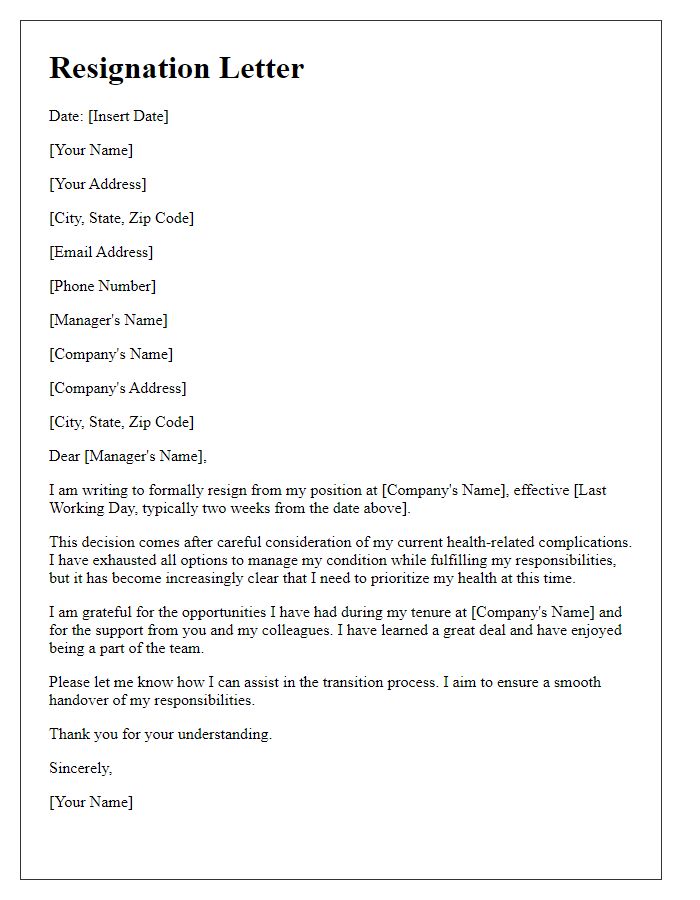

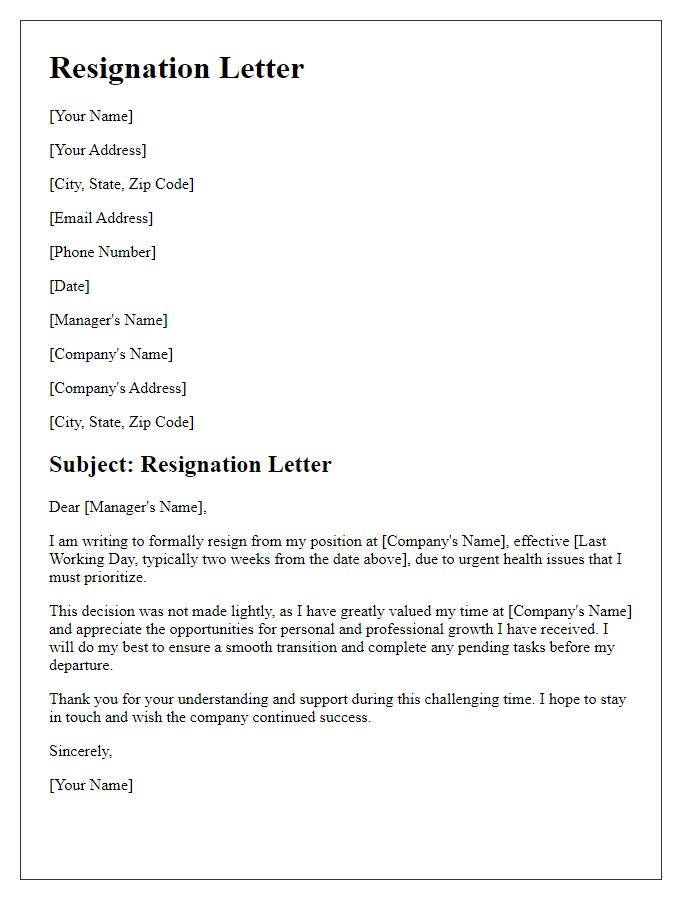
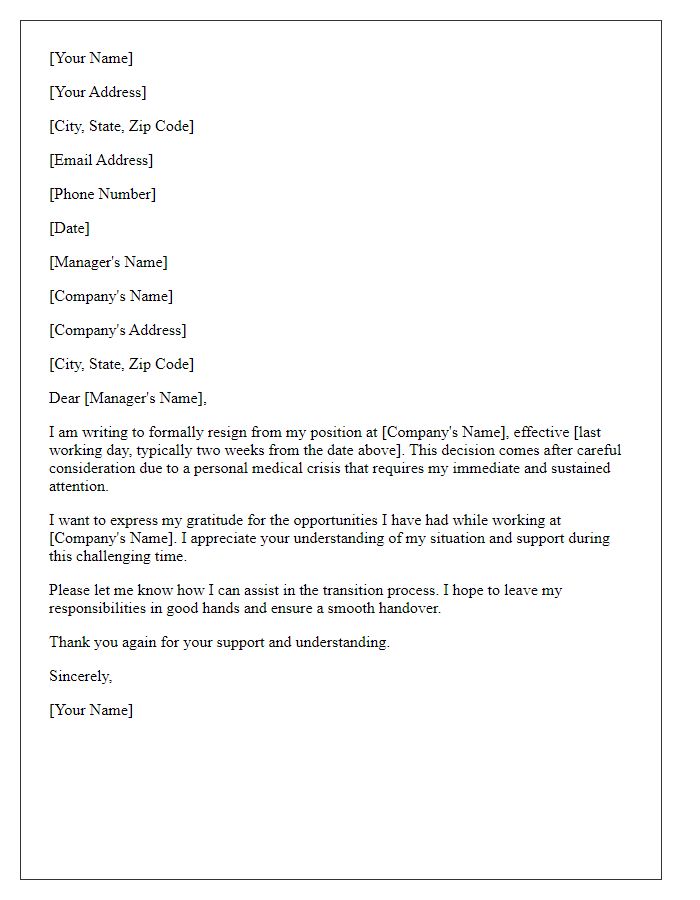
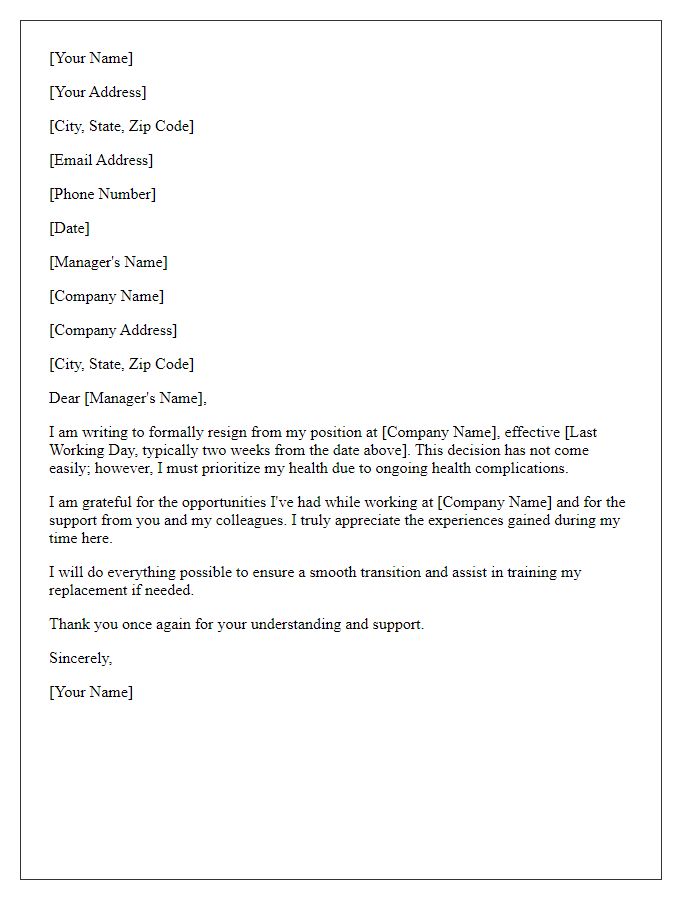
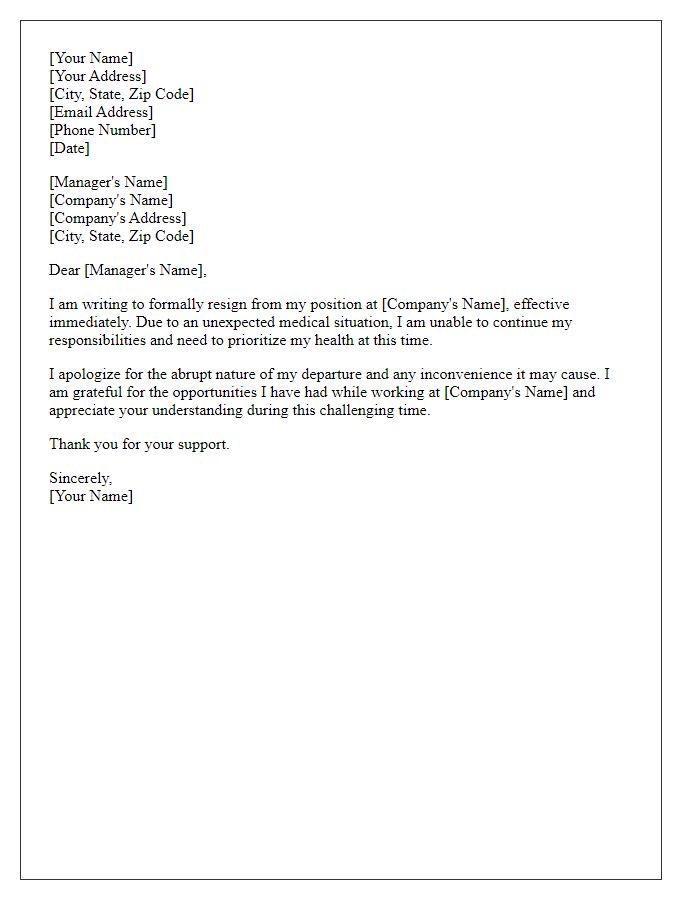
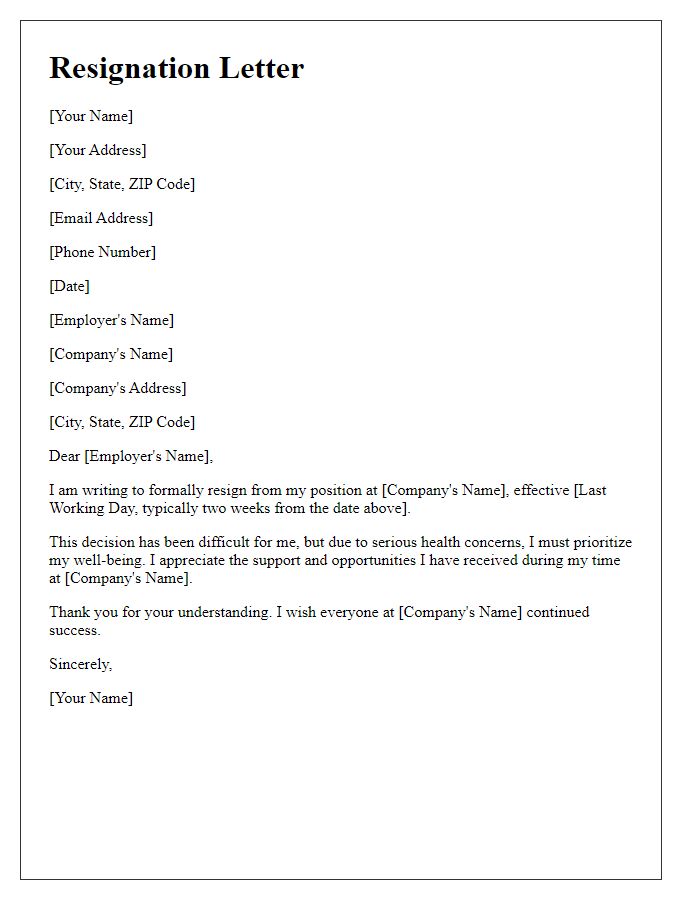
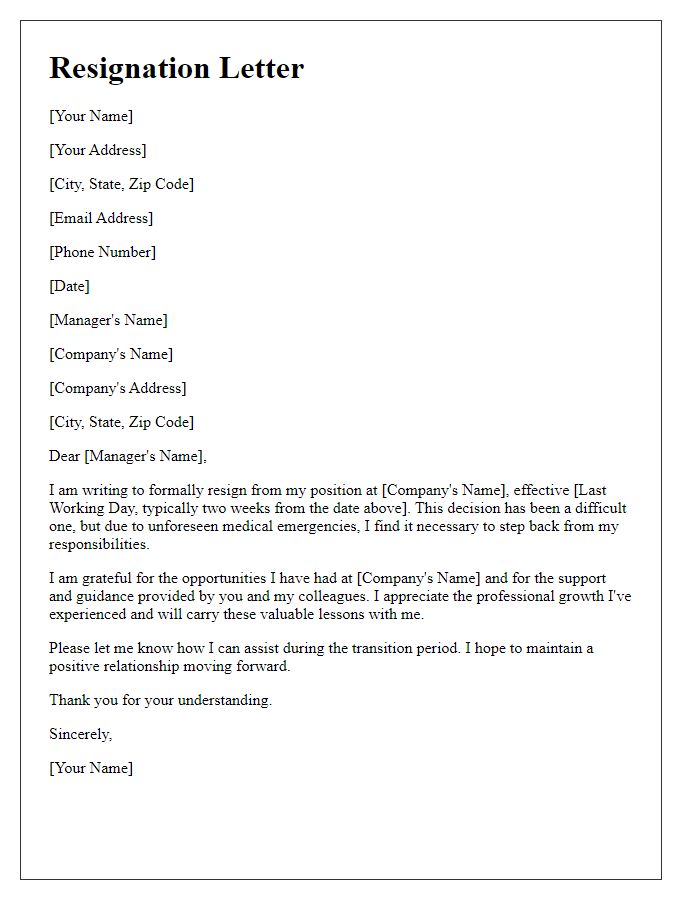
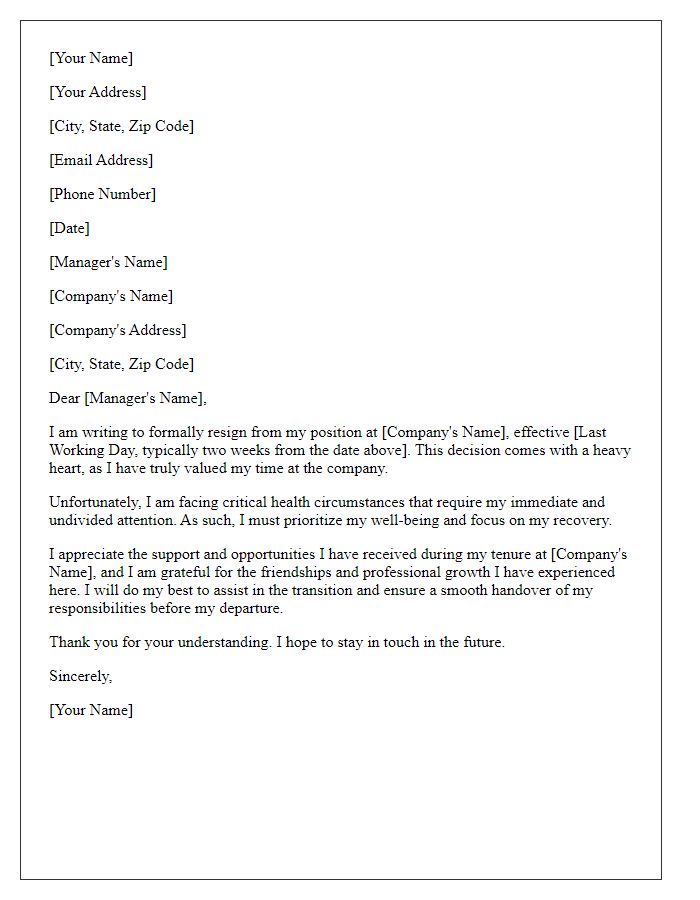
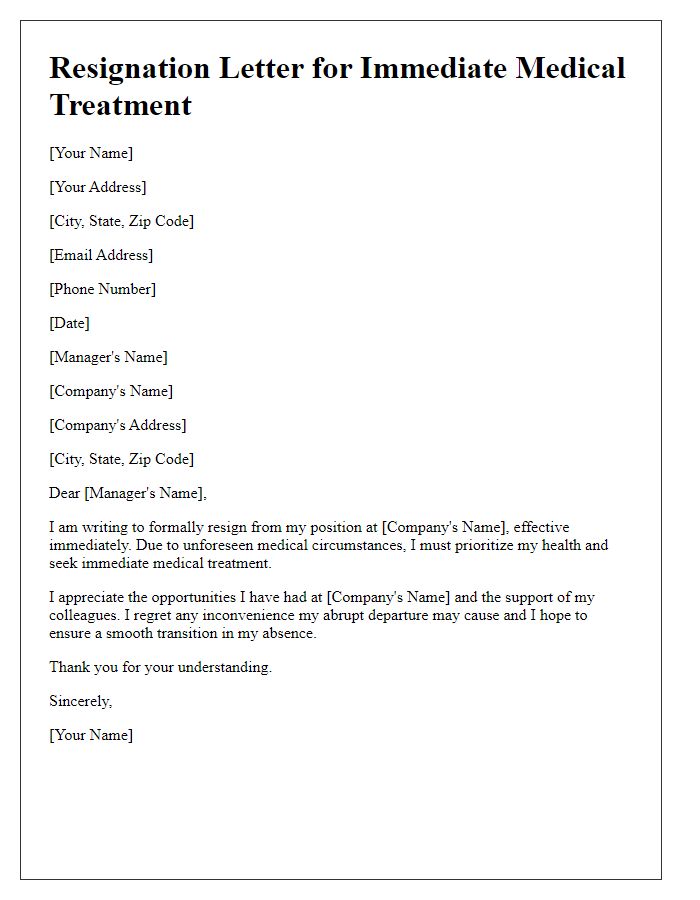
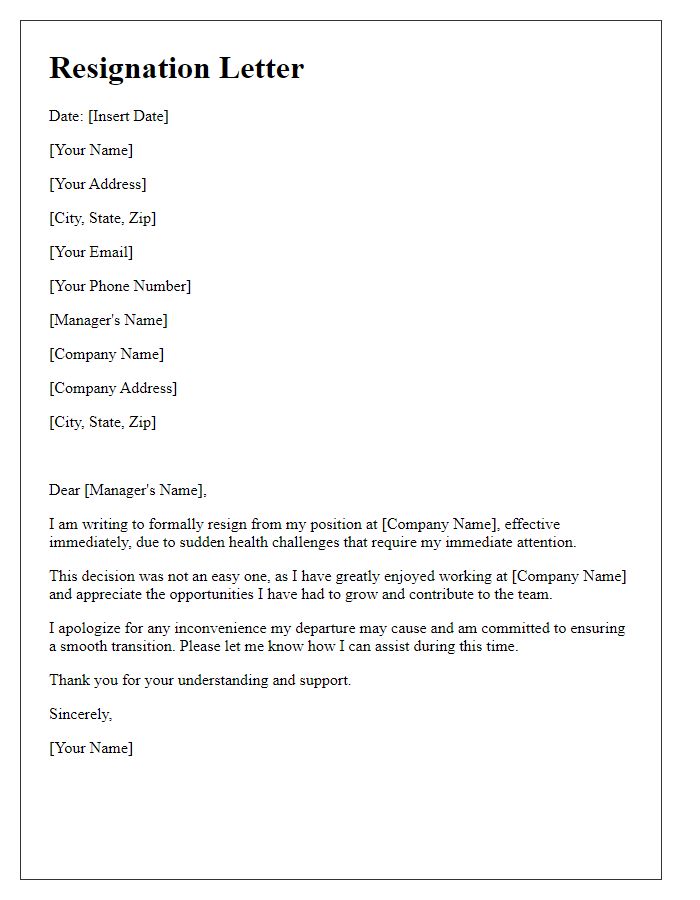

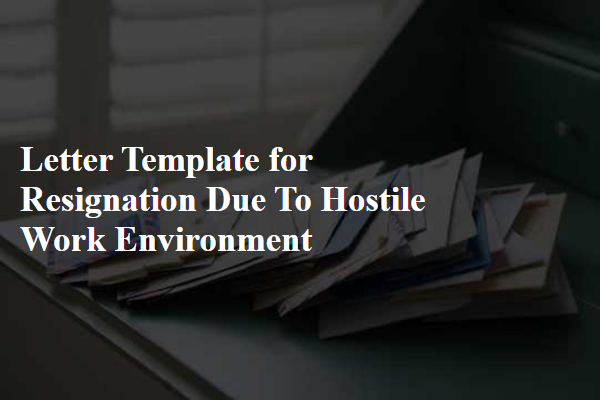
Comments